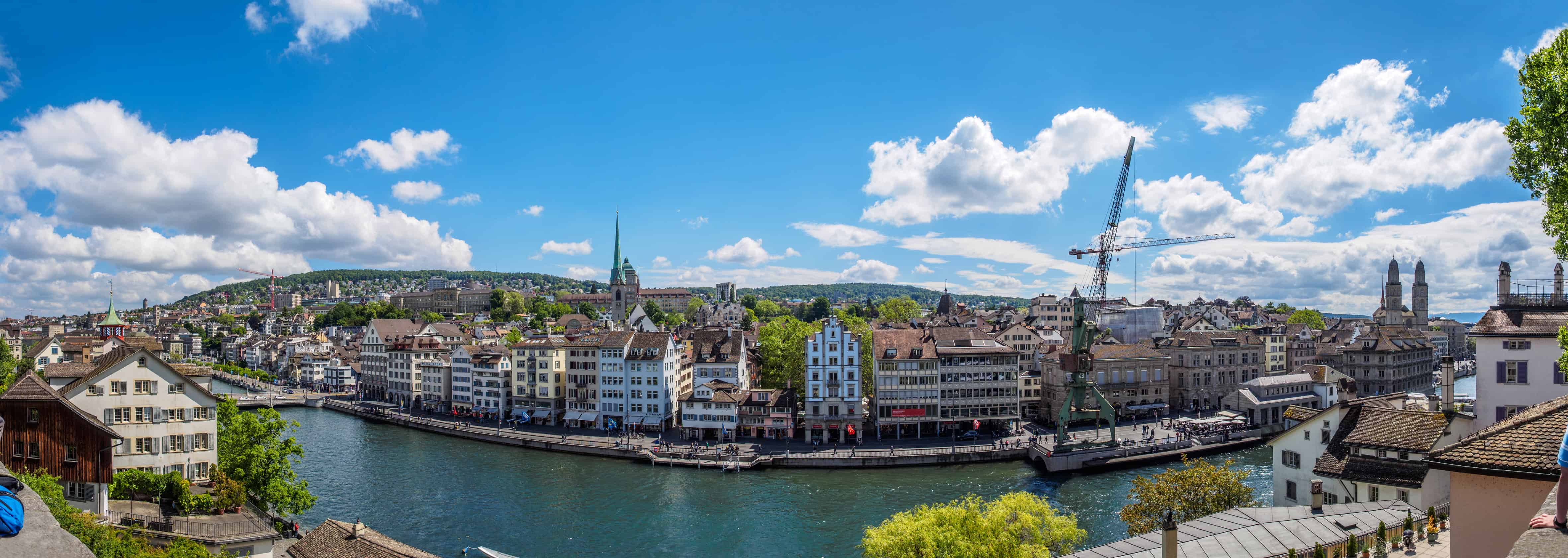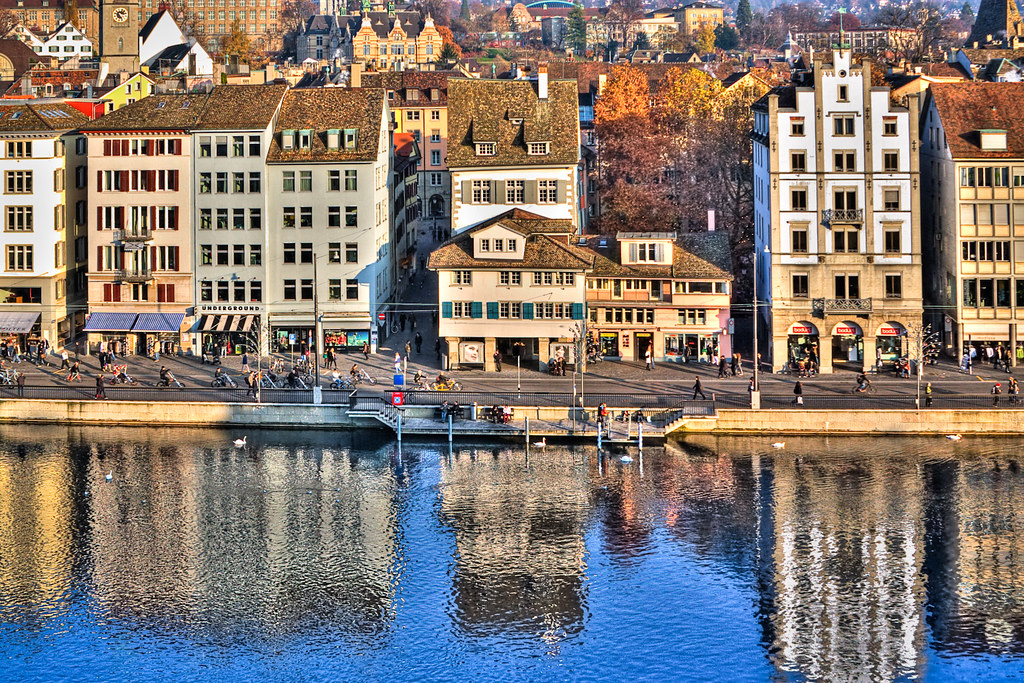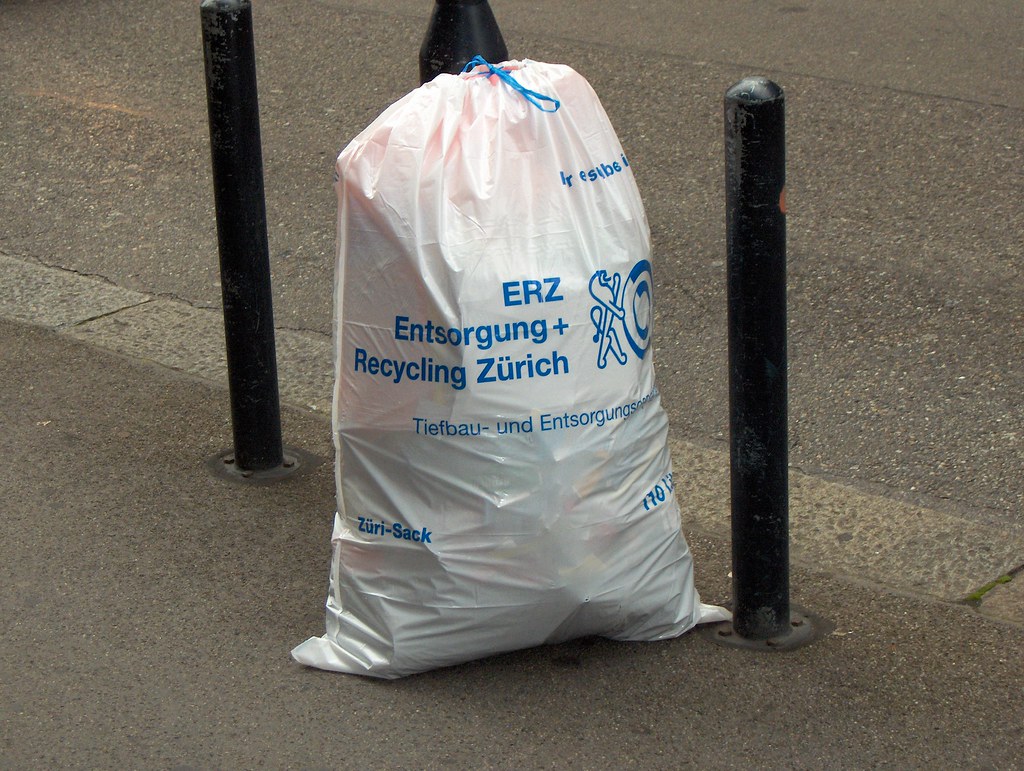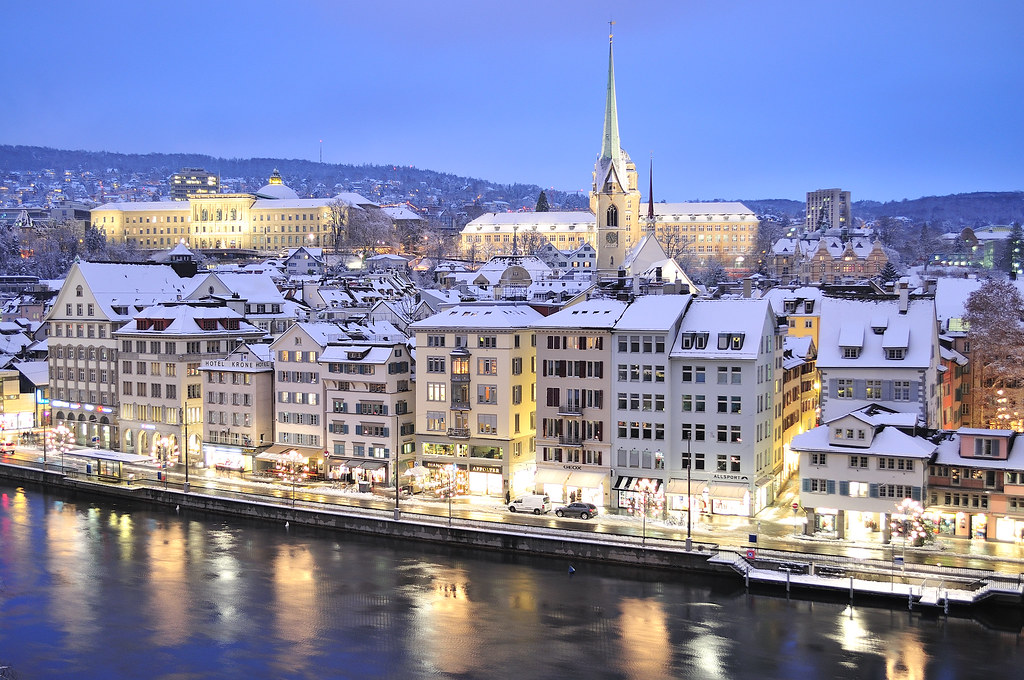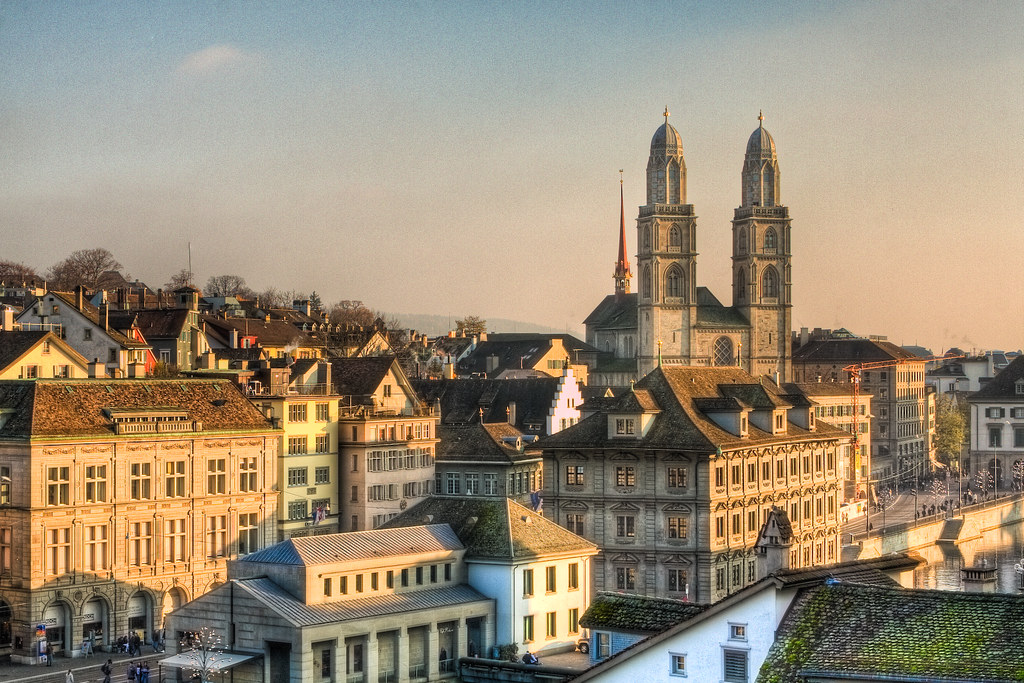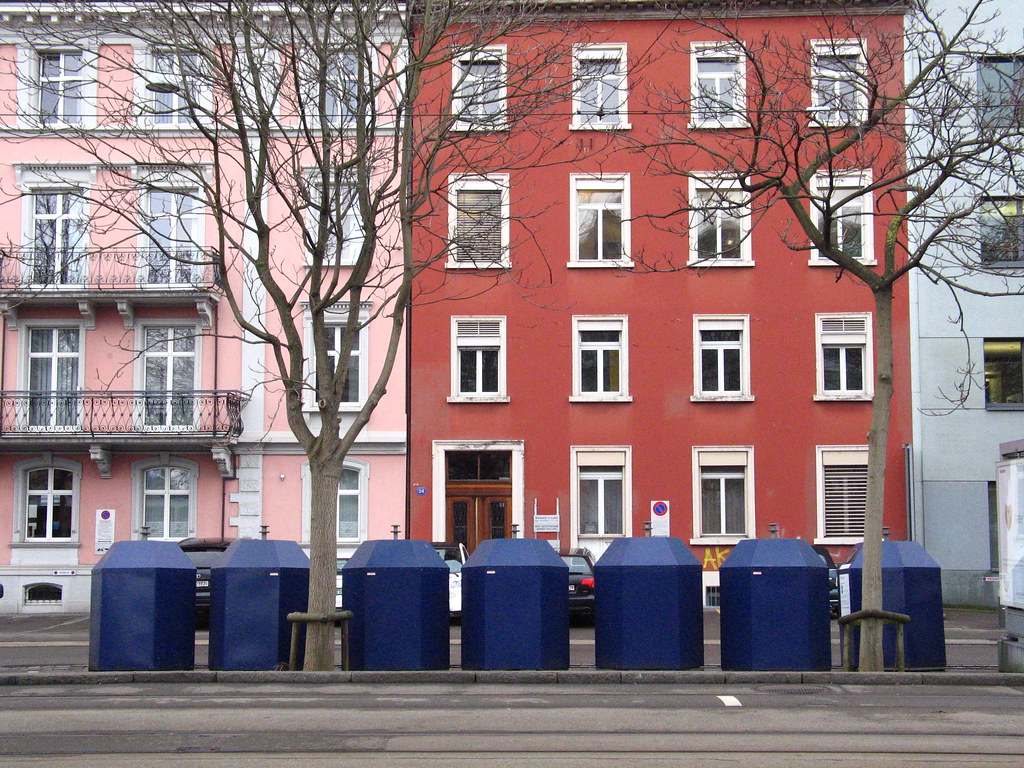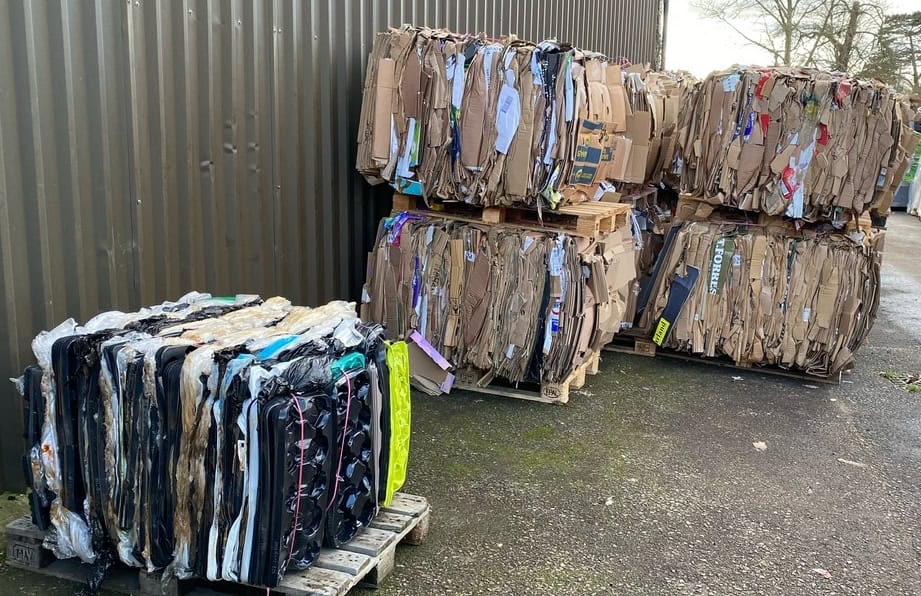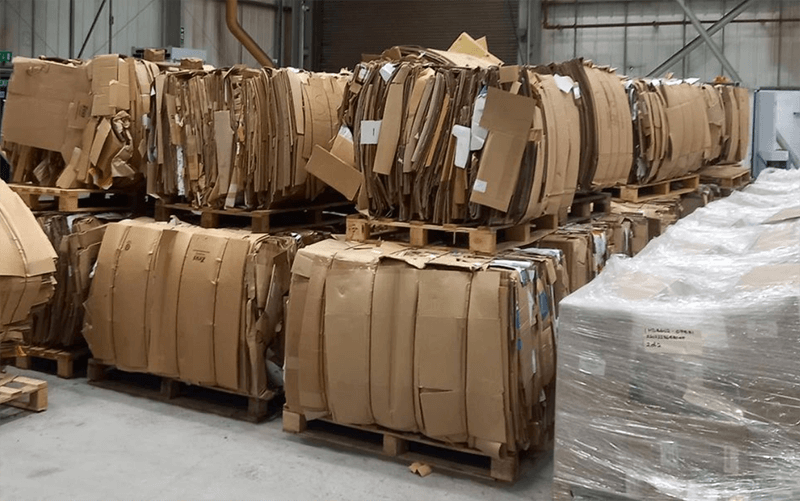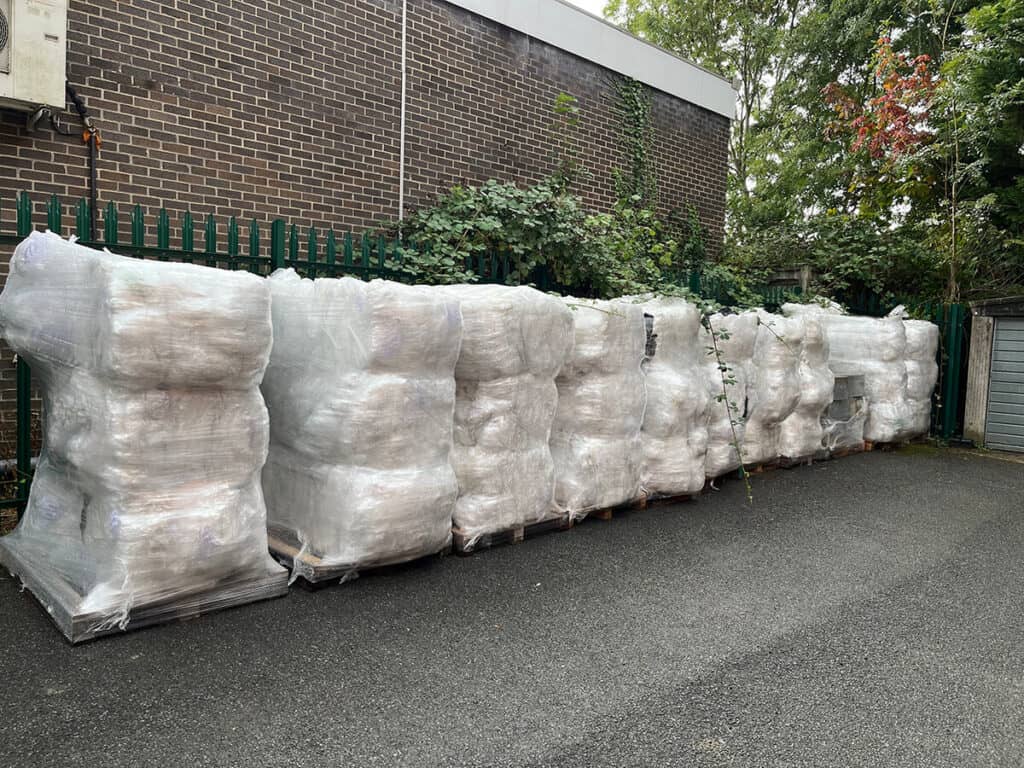Nachhaltigkeit und Wiederverwertung in Zürich
Zurich is home to a metro population of 1.8 million people, and is reported as having the highest quality of life in the world. Zurchers have the highest rates of human development on our planet, but what is it they are doing to be included in our series of Sustainable Cities?
We’d like to talk about waste, but the problem is, you’d be hard pressed to find any. There are few statistics released, and the streets are very clean (according to anyone we could find to speak about Zurich). Reportedly, the amount of total waste recycled is about 34% (the UK is half that, at 17%). It is said that very few people miss collection days and the waste services run with the precision of, well, a Swiss watch.
Note: Watches are actually one of Switzerland’s largest and most successful exports, at $22.8bn. This is more than Hong Kong, China, France and Germany combined ($19.5bn).
Recycling (Wiederverwertung)
Recycling in Zurich is quite astounding, and very different to what you’d expect. Whilst the mental image of an efficient recycling system would be more collections offering to collect more materials, the onus is actually on the person. The Zurchers, or Zurcherin as the local males and females are called respectively, are relied on to maintain an efficient system for disposing of their recyclable waste at numerous city drop-off points. The same procedure applies for full bin bags in Zurich (central), as they must be placed in containers. Other parts of Switzerland and Zurich do offer a collection.
Whilst in England, you can nip down to your local shop and get at least 10 bin bags for a pound, Zurich operate on a different system. If they are more expensive, wouldn’t you value the space inside them more? One ‘Zuri-Sack’ costs £3.25. Wince. Keeping true to this system has reduced household waste by 40% in two decades, whilst most other countries have seen it sharply rise.
Residents attribute the locality of recycling deposit centres and the price of Zuri-Sacks as the sub-conscious tactics for turning the city residents into recyclists. By making collections scheduled for different days on a confusing calendar, people have to think more about disposal than less. This has followed them into the supermarkets, where they are faced with the dilemma of buying products with superfluous packaging. The average family fills one sack per week. That sounds very sustainable to us.
The product packaging dilemma has moved from consumers to producers, with notable businesses like Ikea now selling products in far less packaging in their Zurich outlet. Many other stores in Zurich allow you to unwrap and leave packaging behind.
The ability to recycle and stay so organized is part of the Swiss ethic, a country renowned for working hard, following the rules and being organized. The Swiss have the highest ‘Human Capital Development’ in the world, based on Education, Health and Wellness, Workforce Employment and Enabling Environment. The UK ranked 8th, the US didn’t make the top 10. Zurich, being the biggest city in Switzerland, assumedly has the most Swiss people. It is reported that expats rely on the organization of the Swiss to help them function in the city.
Sustainable (nachhaltigkeit) Tourism
The City of Zurich works on a Tram, Bus, Train and Boat ticket scheme, in which one token will allow you access to all. The city train station and airport both act as major transport hubs for Europe, and are incredibly busy, which is why the city encourages cyclists and created a cycle-only network.
This cycling network includes a huge investment of road expansions to allow for bicycle lanes, after bicycle-related road accidents increased by 50% between 2006-2012. Improved road markings for cyclists have been introduced, helping the commuter cyclist to get around and 55km of ‘cycle-carpets’, designed for bicycles community between key areas of the city, are in development. City admin workers are to be given bikes for their commute and generally, place the bike as the most important or protected mode of transport. These are great sustainable methods, as cycling is environmentally friendly!
The Tram system is brilliant, but offers one benefit that we would describe as innovative, and is something we’ve never come across before. The E Tram stops in 10 different neighbourhoods all on different days and is a moving disposable waste service for electronics and appliances. This kind of idea will stop the illegal dumping of hard to get rid of devices like broken fridges and washing machines.
Tourists and city folk are all invited to drink from the 1,200 water fountains in Zurich, which provide very clean and fresh water, which the city is very proud of.
Business and Research
Ranking as Zurich’s largest business, ABB Group has over 150,000 employees and an annual revenue of over $40 Billion. Of course, there’s no point talking about Zurich as a city without talking about it’s biggest inhabitants. Sustainable behaviour goes hand in hand with Corporate Social Responsibility, so what are the robotics and automation company doing?
Well, it’s hard to pinpoint exactly where decisions are being made for such a large business, but it’s comforting to know that they are constantly reviewing stats and figures to make improvements. They’ve set a goal for 20% energy consumption reduction by 2020 and redeveloped their logistics strategy to achieve an 8% carbon saving on air travel.
A certain kind of Zurety
Much of our research on Zurich drew a blank. It is completely abstract to Mexico City, where there seemed to be many eccentric decisions being made to make the city more eco-friendly and help educate residents about sustainability. Zurich seems to already know what they are doing, and are quietly confident about it.
The ETH Zurich is the city university, and ranks as the 13th best in the world. It’s not boastful about the sustainbility work it does, but it reputed to have produced some fine thinkers. The four main areas they research are:
Sustainable Real Estate
Financial Performance
Healthcare
Sustainable Management
Something a bit random
It wasn’t easy to find something peculiar about sustinability in Zurich, as they seem to be very, we dare say it, normal. There was however, one story we came across that we deem just a bit strange.
A wildlife animal park just outside Zurich was found to be serving it’s animals to the customers. On face value, that is terrible, but they managed to justify it. They argued that it better educates people to the rigors of the natural life cycle, and that the few animals (about 1 per week) who are killed have been attempted to be moved to another park but with no luck. It’s sustainability in one of it’s rawest forms, the food chain. The wildlife park has spacial quotas that some animals fall outside of. Some argued that this is cruel, but then where do they think meat comes from? At least these animals had a taste of wild life, before becoming a ‘taste of wildlife’.
Facts
Second highest glass recycling rates in Europe behind Belgium
Metro population 1.8 million
Highest quality of life in the world according to some surveys
Wealthiest city in Europe due to low taxes and many bank headquarters
26.5% protected forest, providing lungs to the city
Europe’s largest clock face is in Zurich
The language is known as Swiss German, but most people speak two languages from a selection of German, French, English, Italian and Latin!
To see some of the other Sustainable Cities in our series follow these links:
Mexico City
Auckland

